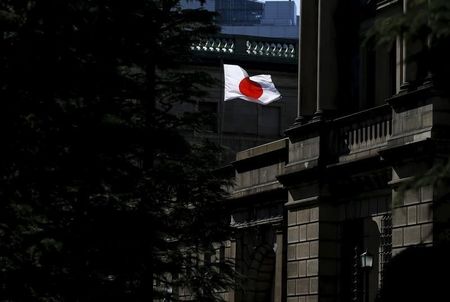BOJ hikes interest rates by 25 bps, sees slower growth and higher inflation
2025.01.23 23:14

Investing.com– The Bank of Japan raised interest rates by 25 basis points, as expected, with the central bank forecasting that inflation will remain underpinned and around its annual target in the coming years.
The BOJ slightly trimmed its gross domestic product forecasts for fiscal 2024 and 2025, while raising its forecasts for inflation.
The BOJ raised its to around 0.5%, in line with analyst expectations. The hike is the central bank’s third raise since it began scaling back its ultra-loose monetary policy in early-2024.
The BOJ signaled that if its economic forecasts were met in the coming months, it will hike interest rates further.
“Given that real interest rates are at significantly low levels, if the outlook for economic activity and prices presented in the January Outlook Report will be realized, the Bank will accordingly continue to raise the policy interest rate and adjust the degree of monetary accommodation,” the BOJ said in a statement.
Friday’s hike comes just hours after data showed Japanese inflation rose further in December and remained above the BOJ’s 2% annual target.
The BOJ said policymakers expect CPI to average around 2.6% to 2.8% in fiscal 2024, slightly above prior expectations of 2.4% to 2.5%. Their CPI outlook for 2025 is at 2.2% to 2.6%, much higher than prior forecasts of 1.7% to 2.1%.
On the growth front, gross domestic product is expected around 0.4% to 0.6% in fiscal 2024, down slightly from prior forecasts, while GDP for 2025 is expected around 0.9% to 1.1%.
The BOJ’s tightening cycle was sparked largely by expectations of a virtuous cycle of higher wages and increasing private consumption, with recent data showing both trends remained squarely in play.
The central bank recently signaled that it expects 2025 springtime wage negotiations to once again yield a bumper hike in wages, giving it more headroom to keep raising interest rates.
But analysts only expect the BOJ to next raise rates by July, after the conclusion of Japan’s upper house elections offers more political clarity.
Policymakers are also on edge over U.S. President Donald Trump’s plans for increased trade tariffs, which could impact Japanese exporters while also denting the yen.








